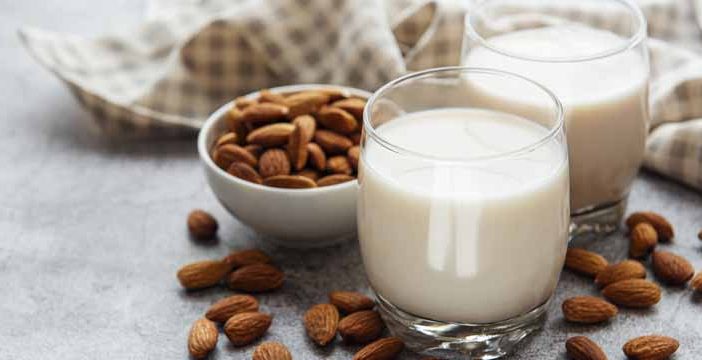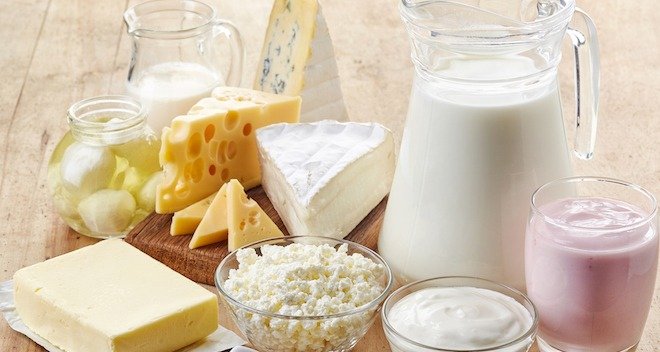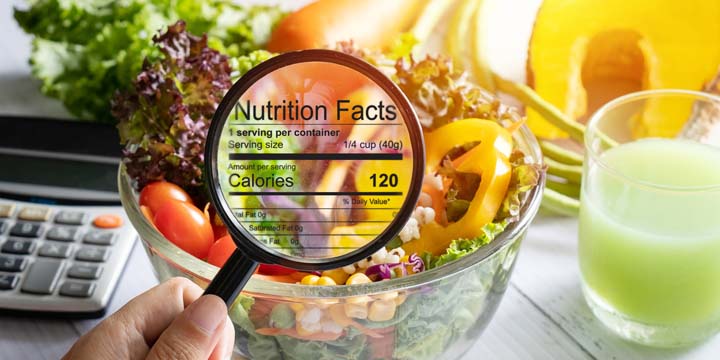
There are a variety of milk and milk alternative products for people with diabetes. Some of the common types of milk that people consume include dairy cow’s milk, organic cow’s milk, lactose-free cow’s milk, goat milk, almond milk, soy milk, rice milk, oat milk and coconut milk beverage. Read on to learn more about the nutritional benefits of milk and milk alternatives for people with diabetes.
Types of milks available in Canada
The table below shows various types of milk available in Canada and their nutritional information (based on a serving size of 250 mL/1 cup), in order from lowest to highest carb content.
Use the slider at the bottom of the chart to reveal all of the columns of information.
| Brand and type of milk | Calories | Carbohydrates | Fat | Protein |
|---|---|---|---|---|
| Earth’s Own zero sugar oat milk | 60 | 5 grams | 4 grams | 1 gram |
| Fairlife ultra filtered skim cow’s milk (Lactose Free) | 80 | 6 grams | 0.3 grams | 14 grams |
| Silk organic soy milk | 100 | 8 grams | 4 grams | 7 grams |
| Silk original coconut beverage | 80 | 8 grams | 5 grams | 0.5 gram |
| Earth’s Own almond milk | 60 | 9 grams | 3 grams | 1 grams |
| Liberté 2% goat milk | 120 | 11 grams | 5 grams | 7 grams |
| Neilson 2% cow’s milk | 130 | 12 grams | 5 grams | 9 grams |
| Sealtest fat-free skim cow’s milk | 90 | 12 grams | 0 grams | 9 grams |
| Beatrice 1% partly skimmed cow’s milk | 110 | 12 grams | 2.5 grams | 8 grams |
| Grand Pré 1% cow’s milk | 110 | 12 grams | 2.5 grams | 8 grams |
| Natrel organicfine-filtered 2% cow’s milk | 130 | 13 grams | 5 grams | 9 grams |
| Sealtest 3.5% cow’s milk | 150 | 13 grams | 8 grams | 9 gram |
| Natura fortified rice milk beverage | 130 | 26 grams | 2.5 grams | 1 grams |
Can milk or milk alternatives be a part of a diabetes diet?
Milk and milk alternatives can definitely be a part of your diabetes diet. Cow’s milk is an excellent source of the following nutrients:
- Calcium
- Phosphorus
- Potassium
- Protein
- Riboflavin
- Selenium
- Vitamin B12
Milk is also a good source of vitamin A, magnesium, thiamine and zinc.
However, people with diabetes should choose their milk products carefully. Most cow’s milk contains saturated fat, which can contribute to weight gain and heart disease if consumed in large quantities. The amount of saturated fat increases as the percent fat increases; therefore, lower fat milk is a better option. Soy and almond milk contain healthier monounsaturated and polyunsaturated fats.
As well, milk contains carbohydrate, which can cause your blood sugar to spike if consumed in excess. Rice milk is particularly high in carbohydrates.
It’s important to check out sugar content since many soy or almond milk options have added sugars to improve the taste. White dairy milk has no added sugars.
In terms of protein content, cow’s milk and soy milk are the best options. Interestingly, almond milk has very little protein given that raw almonds are a great source of protein.
While cow’s milk is a good source of calcium, many alternative milks are also fortified with calcium.
Incorporating milk products into your meal plan
Aside from drinking a glass of milk with your meal, try these ideas for incorporating it into your daily nutrition plan:
- Make a smoothie by combining milk, ice cubes, some greens and a handful of fruit
- Prepare your morning oatmeal with skim or 1% milk for a tasty and more nutritious alternative to water
- Add a few ounces of milk to your favourite soup recipe for added flavour and nutrition
Milk and milk alternatives can definitely be part of your diabetes diet. However, it’s important for people with diabetes to choose lower-carb, lower-fat and unsweetened options more often, and to consider the protein and calcium content.




